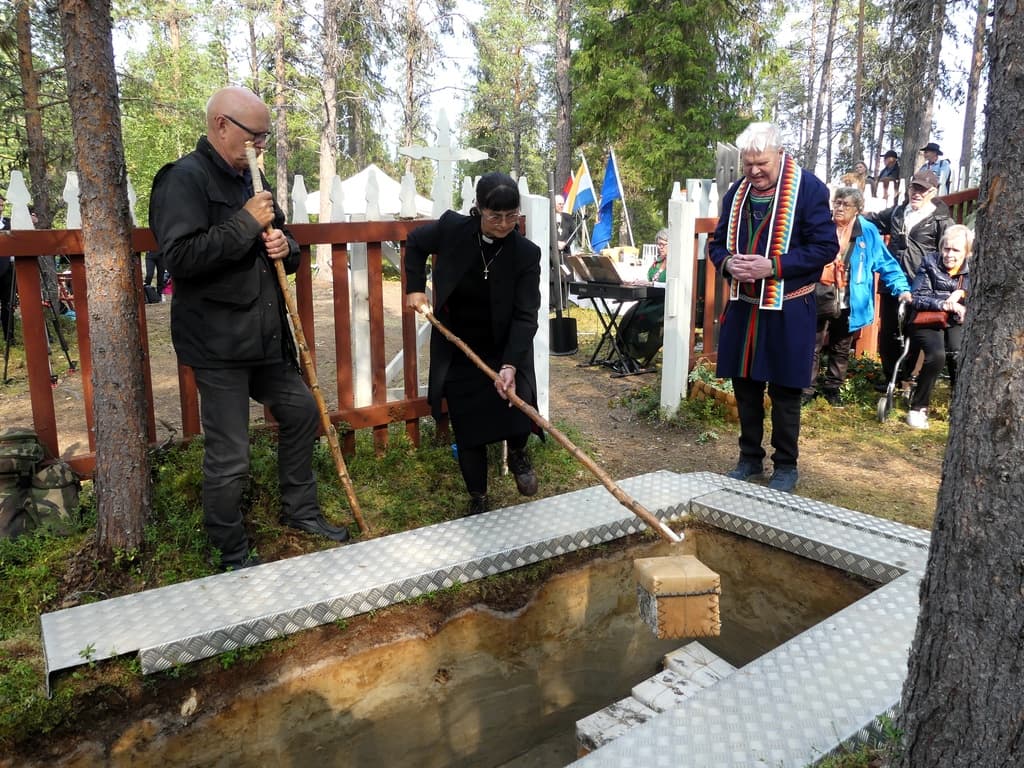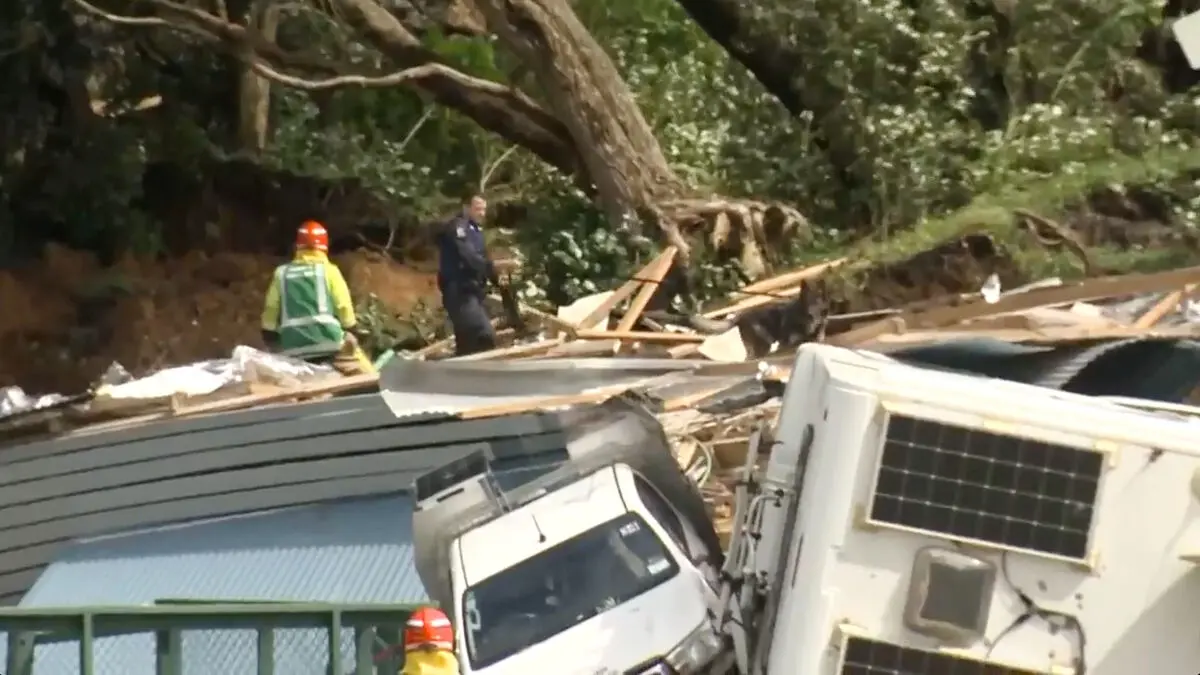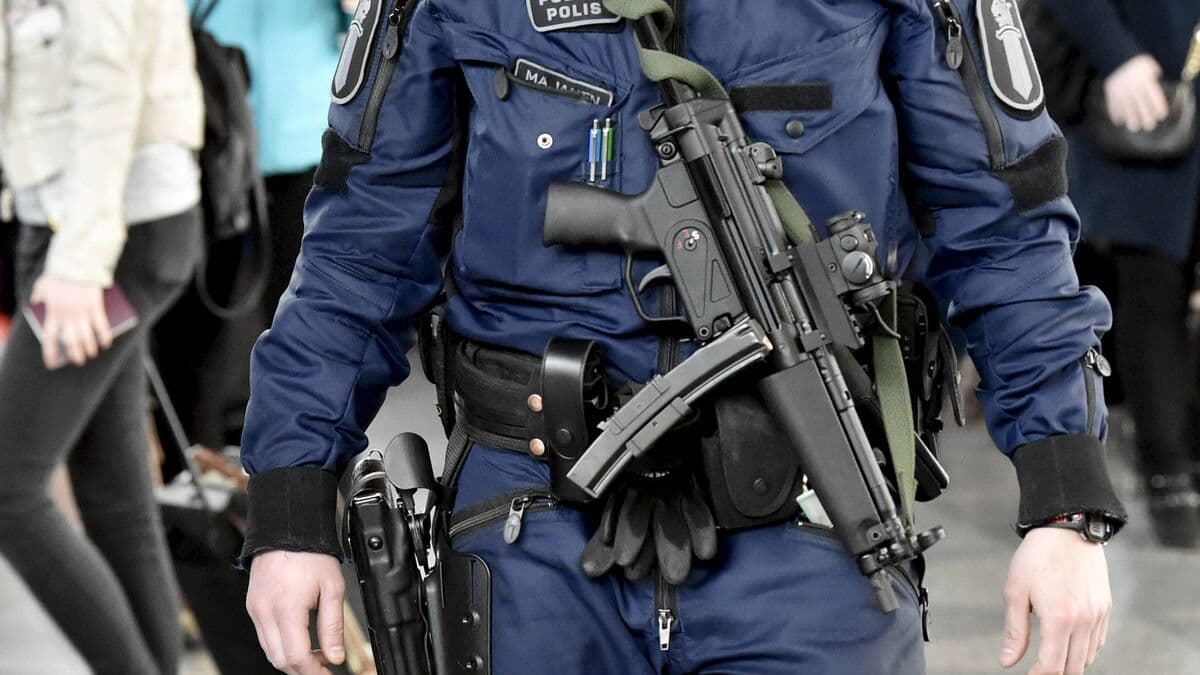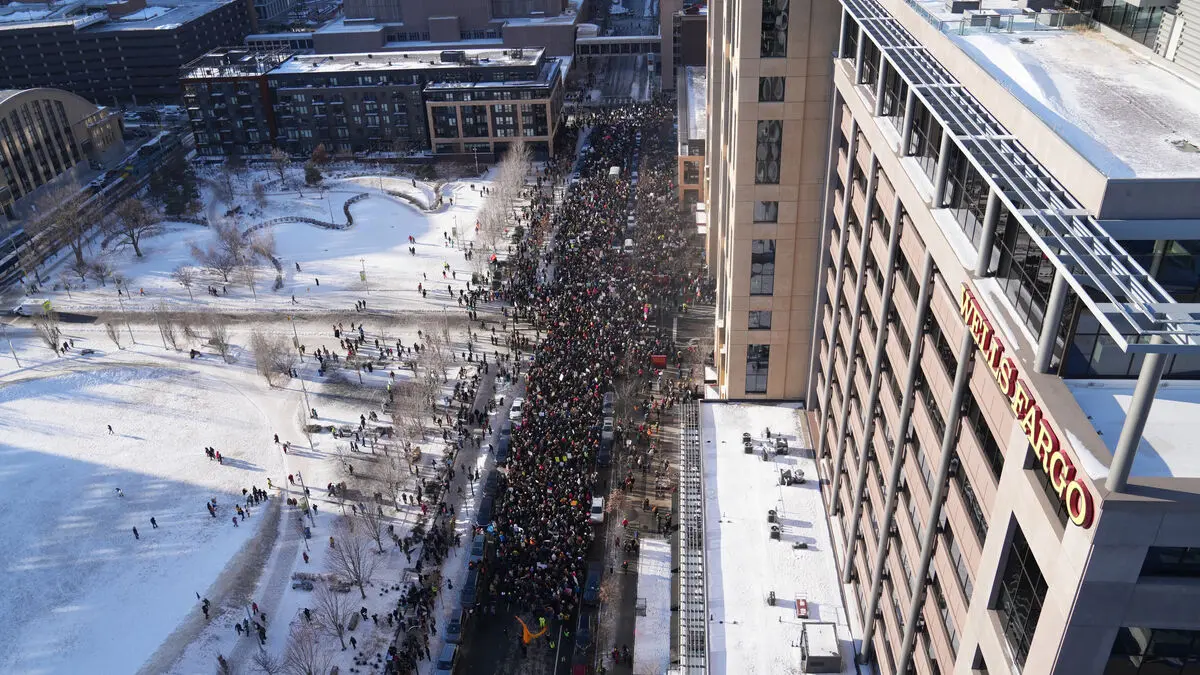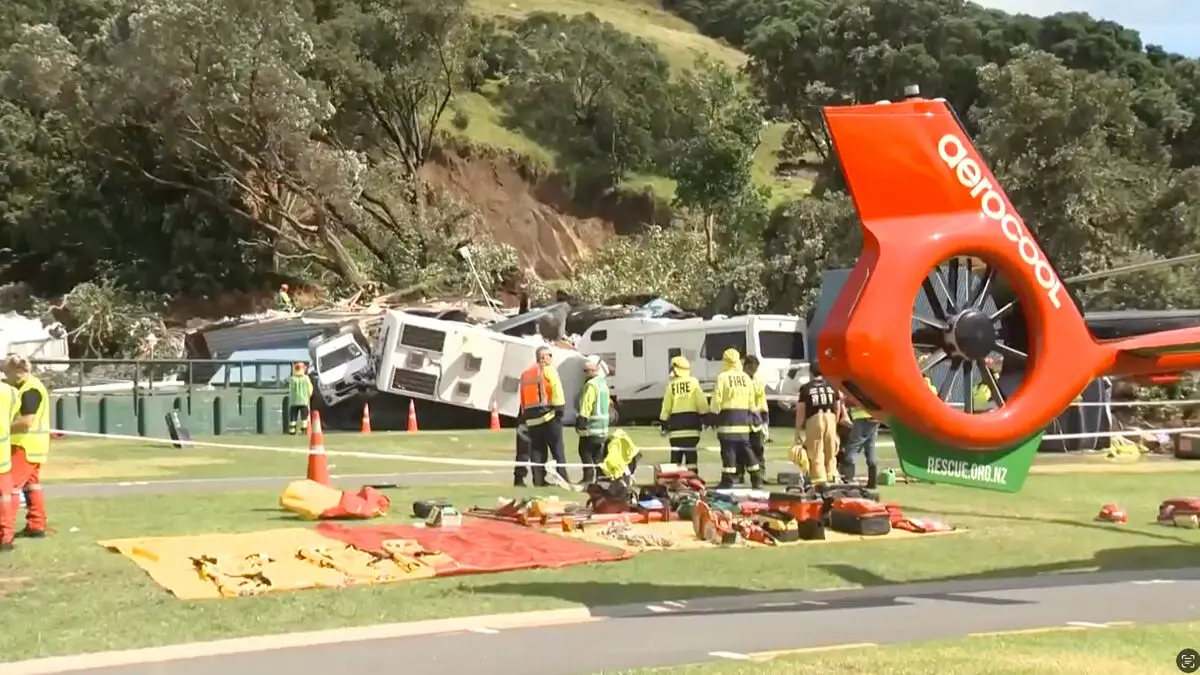Bishop Åsa Nyström, who participated in the ceremony, says that this was an important day for many.
"The fact that it was carried out by so many good intertwined forces gives hope for healing processes where wounds have existed. Above all, it is important for the people who live in or come from the region", she says in a press release.
Before the ceremony, Eva Kvist from the Swedish Tornedalian Association (STR-T) told SVT Norrbotten that the reburial is also an acknowledgement of what went wrong.
STR-T is behind a request that led to the decision on the return. Muonio sameby and the Church of Sweden have also been involved in the long preparations.
In 1878, 23 skulls were excavated from the Akamella abandoned cemetery outside Muodoslompolo in Pajala. It concerned graves from Tornedalian, Kven, Lantalainen and Sami individuals, whose remains would then be used for racial biological research in Helsinki.
This is the first time that remains from the meänkieli-speaking population are being returned.
It's a great day to receive these skulls, that they get to come home, said Ritvaelsa Seppälä, diocese adjunkt at Luleå diocese, to SVT.

